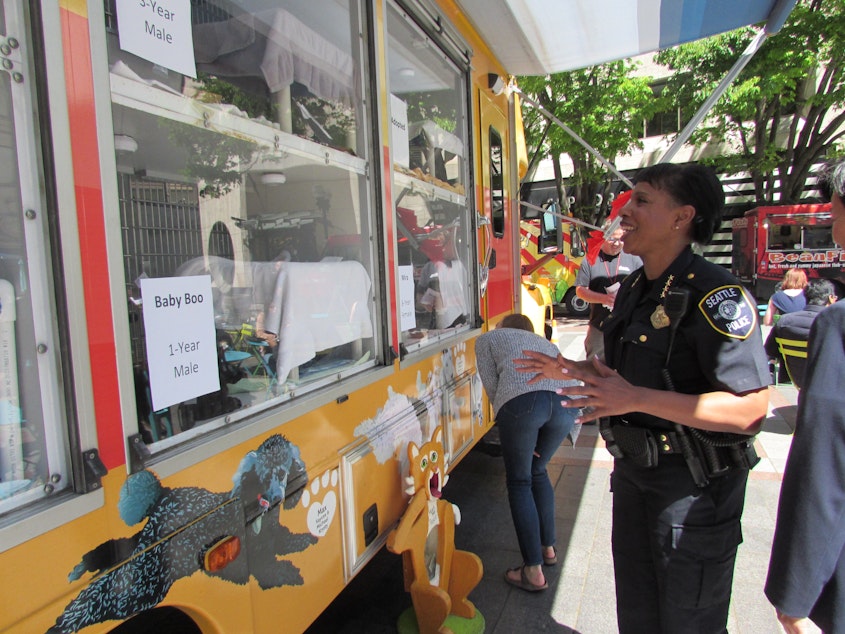'No battle brewing.' Seattle officials pledge to address crime together

Seattle is one week into new “emphasis patrols” with increased police presence in seven neighborhoods. And city officials are walking the streets, anxious to show they’re listening.
Standing in Westlake Plaza Wednesday, Police Chief Carmen Best said boosting police presence is a familiar tactic to address crime – like Seattle’s current increase in aggravated assaults.
“The emphasis patrols work, they’re meant to address hot spot areas and the idea that we’re bringing other people in," Best said. That includes city employees to address graffiti and vandalism.
Mayor Jenny Durkan did not elaborate on how the seven neighborhoods were chosen beyond the city's initial explanation of "data and community input." She refuted that those were the neighborhoods where residents were the most vocal about crime. "I haven't heard that criticism," she said. "What I've heard from every neighborhood and community group is, 'we are so glad you're listening, not just to what the data is showing, but what we're experiencing in our community.'"
Two weeks ago, City Attorney Pete Holmes and presiding Municipal Court Judge Ed McKenna exchanged public letters revealing their differences on how to address chronic offenders. But at Westlake, Durkan said the stakeholders will be able to resolve their disagreements.
“There’s no battle brewing," she said. "All those people were in the same room today for two hours talking about solutions.”
Sponsored
Seattle police officials are telling local prosecutors that the emphasis patrols could result in more arrests. Assistant chief Eric Greening told Seattle City Council members Wednesday that he has spoken with the King County prosecutor’s office and plans to meet with the City Attorney’s office as well.
“There’s no hardcore blanket, 'We’re just going to scoop everyone up,'" Greening said. "If we have a chronic offender who is causing a problem in the community, we will call ahead and say, we have this person, this is the situation. So it’s on a case-by-case basis.”
Greening said every contact and arrest will be tracked and analyzed for racial bias and other issues.
The recent System Failure report funded by business groups found that chronic offenders tended to be homeless and struggling with addiction and mental illness.
Durkan said the emphasis patrols won’t necessarily end after 30 days; they’ll just start evaluating them at that point.




